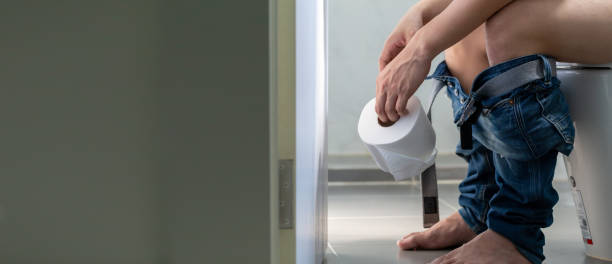Diarrhoea is the decrease in the form of stool and an increase in the frequency of bowel movements. It means having abnormally loose and watery stool and the urgent need for bowel movements many times a day. Diarrhoea can be acute when it lasts one to two days and chronic when you have it on most days for 2 to 3 weeks.
Causes
Common causes of acute diarrhoea are:
- Parasitic infections.
- Viral infections such as norovirus, rotavirus and viral gastroenteritis.
- Bacterial infections such as E. Coli and salmonella acquired through drinking or eating.
- Adverse reactions to medication.
- Food intolerance.
- Food poisoning.
Common causes of chronic diarrhoea include:
- Inflammatory bowel disease (IBD).
- Irritable bowel syndrome (IBS)
- Celiac disease and other conditions.
- Gall bladder or stomach surgery.
- Intestinal disease.
Symptoms of Diarrhoea
The most notable signs of diarrhoea are watery, loose stools and frequent, more pressing bowel movements. Still, you may experience many other symptoms, such as.
- Cramping.
- Nausea.
- Bloating.
- Abdominal pain.
- Dehydration.
- Large volume of stools.
Treatment
The fastest treatment for this condition is by using over-the-counter medications like bismuth or loperamide. These drugs can reduce bowel movement and offer quick relief for diarrhoea, but if your condition doesn’t improve, a doctor may also recommend treatments like:
- Antibiotics or anti-parasitics to kill the causative bacteria or parasites.
- Medications to treat any underlying chronic conditions, such as IBS and IBD.
- Probiotics to introduce a healthy amount of good bacteria into your gut, which will help combat diarrhoea.
Aside from these treatment options, there are some other things you should do at home to help you recover and feel better as soon as possible.
- Choose low-fibre foods that can firm your stool and make it more solid, such as white rice, banana, noodles, bread, potatoes, beef, etc.
- Drink plenty of water and fluids like fruit juices, sports drinks, caffeine-free sodas, etc, to replace the fluid and electrolytes you have lost due to the diarrhoea.
- Avoid food and drinks that can increase gas in your stomach, such as beer, beans, carbonated beverages, cabbage, sprouts, etc.
- Avoid alcohol and caffeine because they have some laxative effects that can worsen your condition.
- If you feel discomfort like a sore, burning or itching in your anus, sit in lukewarm water in a bathtub for quick relief.



